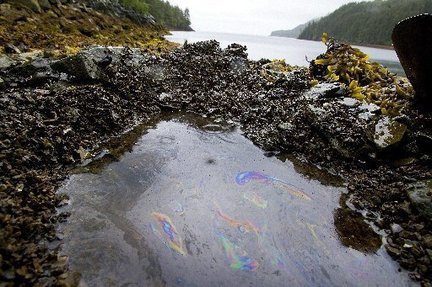The Oil War; The Lies That Are Untold
One of the most interesting questions in my mind was, Who had advised the President to make the premature announcement on January 1 about phasing out the subsidy? I wanted to know because I had become the scapegoat for that action. That I was "a political figure that has attracted an amount of hostility" was noted by former US ambassador to Nigeria John Campbell, in a Daily Beast article on December 11, 2012, at the time of my mother's kidnapping. The article continued, "Okonjo-Iweala is a controversial figure who oftern is blamed for a sudden slash in Nigeria's fuel subsidy program early this year."3 Most of the media reports did indeed blame me-yet I was one of the last to know about the proposed New Year's Day announcement No one owned up to giving this poor advice to the President, and Goodluck Jonathan, to his credit, refused to blame anyone, taking total responsibility for the policy action It was not until a meeting of the National Economic Council weeks later, when the issue was under discussion, that Governor Babaginda Aliyu, former governor of Niger state and then chair of the Northern Governors Forum, bravely acknowledged that it was the governors who had urged the President not to delay any longer but to announce the subsidy phaseout at the beginning of the year.

The mystery was solved, but I found it incredible that none of the governors came to the rescue when the policy roiled the nation and that they were content to let others take the blame! Nigeria's oil subsidies in 2011 totaled a frightening N1.73 trillion ($11.2 billion, at the prevailing exchange rate), of which kerosene subsidies were N310.4 billion ($2 billion). This represented 2 of GDP, 33 percent of net Federation revenues, and 38 percent of the federal government's budget. With the phase-down, consumers went from paying N65 at the pump for a liter of gasoline to N97 (S0.62 or the equivalent of $2.35 a gallon). Monies saved were channeled into SURE-P and shared between the federal government and the stat according to the standard Federation sharing formula of 52 percent to the federal government and 48 percent to state and local governments. Pursuant to the agreement with labor, the federal government invested its savings into safety net programs for transportation, job creation maternal and child health, and infrastructure development-mainly roads and rail. Oversight for the program was the responsibility a national committee headed by Dr. Christopher Kolade, Nigeria's much-respected former High Commissioner to the United Kingdom.
One of the most discussed issues during the protests was alleged fraud in the oil-subsidy program. These fraudulent dealings went beyond the smuggling of oil shipments over the border into neighboring countries such as Benin and Niger, where prices were much higher Allegations were rife that companies were claiming subsidies for shipments of oil never delivered. For shipments of kerosene, allegations swirled that corrupt payments were being made to assign the rights to import cargos of subsidized kerosene to certain companies, which then sold the kerosene to consumers at nonsubsidized prices.
To listen to the audio version of this article click on the play image.

Brought to you by @tts. If you find it useful please consider upvoting this reply.